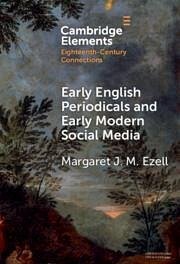
Digressive Voices in Early Modern English Literature
Versandkostenfrei!
Versandfertig in 1-2 Wochen
107,99 €
inkl. MwSt.

PAYBACK Punkte
54 °P sammeln!
Digressive Voices in Early Modern English Literature looks afresh at major nondramatic texts by Donne, Marvell, Browne, Milton, and Dryden, whose digressive speakers are haunted by personal and public uncertainty. To digress in seventeenth-century England carried a range of meaning associated with deviation or departure from a course, subject, or standard. This book demonstrates that early modern writers trained in verbal contest developed richly labyrinthine voices that captured the ambiguities of political occasion and aristocratic patronage while anatomizing enemies and mourning personal loss. Anne Cotterill turns current sensitivity toward the silenced voice to argue that rhetorical amplitude might suggest anxieties about speech and attack for men forced to be competitive yet circumspect as they made their voices heard.
Cotterill turns feminist sensitivity toward silenced voices to look afresh at major nondramatic texts by Donne, Marvell, Browne, Milton, and Dryden. Anne Cotterill examines richly digressive speakers who carve literary mazes through a dangerous world for psychological, political, and poetic survival--and attack.












